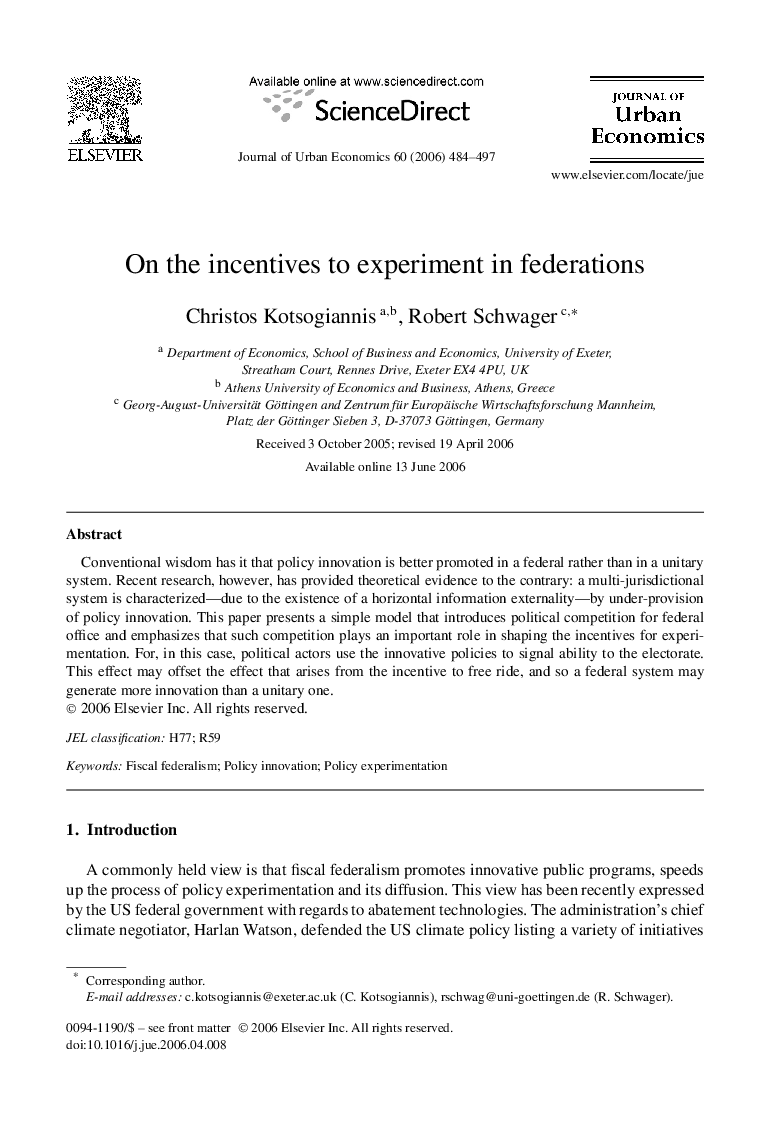| Article ID | Journal | Published Year | Pages | File Type |
|---|---|---|---|---|
| 972003 | Journal of Urban Economics | 2006 | 14 Pages |
Conventional wisdom has it that policy innovation is better promoted in a federal rather than in a unitary system. Recent research, however, has provided theoretical evidence to the contrary: a multi-jurisdictional system is characterized—due to the existence of a horizontal information externality—by under-provision of policy innovation. This paper presents a simple model that introduces political competition for federal office and emphasizes that such competition plays an important role in shaping the incentives for experimentation. For, in this case, political actors use the innovative policies to signal ability to the electorate. This effect may offset the effect that arises from the incentive to free ride, and so a federal system may generate more innovation than a unitary one.
